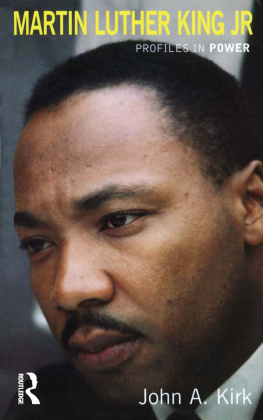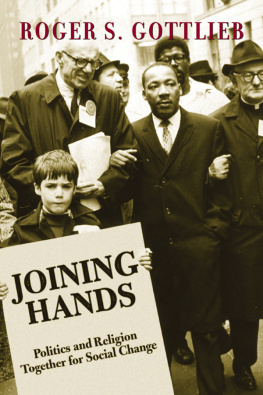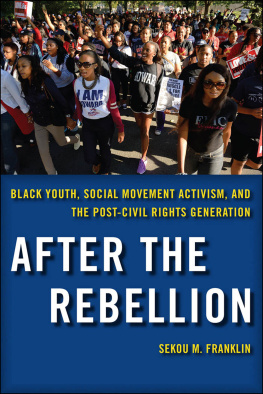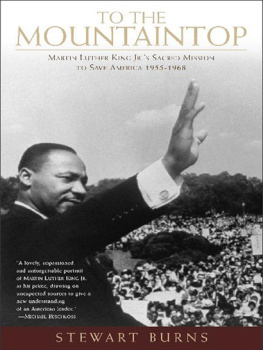9

From Narrow Nationalism to Global Leadership and Citizenship
The world has become more integrated and compressed than ever beforea living parallel to the body that Paul describes so eloquently in 1 Corinthians.
The body is a unit, though it is made up of many parts; and though all its parts are many, they form one body. So it is with Christ. For we were all baptized by one Spirit into one bodywhether Jews or Greeks, slave or freeand we were all given the one Spirit to drink.... But God has combined the members of the body and has given greater honor to the parts that lacked it, so that there should be no division in the body, but that its parts should have equal concern for each other. If one part suffers, every part suffers with it; if one part is honored, every part rejoices with it. (1 Corinthians 12:12-13, 24-26)
In this first letter to the church at Corinth, the apostle Paul offers a brilliant and compelling metaphor likening the church to the human body. The Bible tells us that we are fearfully and wonderfully made. One can only marvel at the biological and physiological miracle that constitutes the human body. If the church is meant to function according to the design of the human body, then each part of the body or each member, in the case of the church, becomes indispensable and interdependent. Verses 25-26 say it best: its parts should have equal concern for each other. If one part suffers, every part suffers with it; if one part is honored, every part rejoices with it. Dr. King captured the essence of this text when he said, injustice anywhere represents a threat to justice everywhere.
If we were to take to heart the notion that if one part suffers, every part suffers with it; if one part is honored, every part rejoices with it (1 Corinthians 12:26), we could begin to understand our interdependence in new and profound ways. The test of our global leadership, and the key to our collective security, is whether we can globalize a commitment to human rights that affirms and protects human dignity and safeguards freedom.
The body of Christ has become an increasingly international one due to the explosive growth of the church in the Global South. The fastest growing churches are not in North America or Europe but in Africa, the Caribbean and Southeast Asia. Today 70 percent of Christians live outside of North America and Europe. In 1900 this number was merely 10 percent. Every second, two more people surrender their lives to Christ somewhere in the world. If you want to visualize a typical Christian today, picture a rural woman living in a village in Nigeria or a young man in a favela or urban slum in Brazil. New converts are proliferating across the Global South, yet a lack of understanding and deep relationship with these new Christians drives an unnecessary wedge between us. Yet the southern church could help save the northern church from its indifference and fragmented faith.
Trillions of dollars are transferred every day through financial markets while goods and services are traded across borders. Social media have made communicating across the globe as easy as setting up an email or Facebook account. The Internet age has generated new tools, methods and opportunities for organizing almost every aspect of our lives. In this rapidly changing and collapsing world we must act and think both locally and globally. Our moral obligations extend beyond simply our local community, neighborhood or locale. In a global body, our civic and consumer decisions have far-reaching implications for people across the world.
Global Citizenship
Every two years the Olympic Games provide a vivid reminder of the potential for global cooperation and harmony. It seems fitting that I started writing this manuscript as the 2008 summer Olympic Games were getting underway in Beijing, China, and am now finishing revisions as the 2010 Vancouver games get started. The Olympic opening ceremony provides a fitting backdrop for the concept of global citizenship. The parade of nations represents a kaleidoscope of color and contrast, with athletes from every part of the globe seeking to get a taste of the indomitable Olympic spirit. As athletes seek to achieve personal triumph and bring honor back to their home nation, a powerful camaraderie develops between them based on the common bond as Olympians. Patriotism is counterbalanced with global consciousness and identity. Even deep-seated rivalries and enmity between sworn enemies are often softened and superseded by this Olympic spirit.
In 1996, I had the privilege of being in Atlanta during the Olympic Games. I spent some time in the Olympic Village at the invitation of a friend of mine from high school who competed in the pole vault for his birth country of St. Lucia. Walking through the village felt like a tour of the United Nations, complete with athletes of every nationality, religion and culture blending together to form a new community of athletes. For three weeks, the Olympic flame burns off the edges of our differences, getting to the core of our shared humanity.
Our world increasingly resembles a neighborhood through the power of trade, commerce and technology. Yet as the world shrinks, our sense of citizenship has remained far too static and insulated. Narrow nationalism describes this condition in which an often misplaced patriotism blinds us to our shared humanity, and allegiance to country trumps the recognition that God shows equal concern for the entire world. I feel especially proud and blessed to be an American. Yet I also know that, from a spiritual perspective, my first allegiance is to God and Gods kingdom come.
Narrow NationalismAn American Perspective
One of the dangers of narrow nationalism from a U.S. perspective is that we can conflate Americas purposes with being the same as Gods purposes. But America is not a proxy for God. A belief that God favors American leadership devolves into hubris and a form of triumphalism. While our nation has been blessed with material riches, these blessings cant come at the expense of the rest of the world. As Dr. Richard Land, president of the Southern Baptist Conventions Commission on Ethics and Religious Liberty, writes, Our ultimate allegiance belongs to God. But God is not an American. He may choose to bless America or judge America, but He is not an American. Many Americans worship Him, but He is not an American. And Americas purposes are not necessarily Gods purposes. We must never presume that Americas policies serve Gods purposes. The besetting sin of conservatives
Too often Americans interpret our role in the world through
the lens of American exceptionalism, which refers to the belief that the United States occupies an exalted role among the nations of the world in terms of its national credo, historical evolution, political and religious institutions, and unique origins. The roots of this belief are attributed to Alexis de Tocqueville, who claimed that the then-fifty-year-old nation held a special place among nations, because it was a country of immigrants and the first modern democracy. At worst, exceptionalism feeds a belief that we can do no harm and that the rest of the world hates us only because they envy our freedom and our riches. This defensive and reactionary posture may assuage our consciences but ultimately erodes our moral standing and integrity. A large share of the worlds distrust and even enmity toward the United States is not the result of an irrational or extremist ideology but a feeling of having been exploited and mistreated. At the very heart of the fight against the real threat of terrorism is a struggle to win the hearts and minds of people around the world, particularly Muslims. When the United States shows a selective commitment toward advancing human rights and places its commercial interests above its moral interests, we give greater ammunition to extremists who exploit these contradictions.








